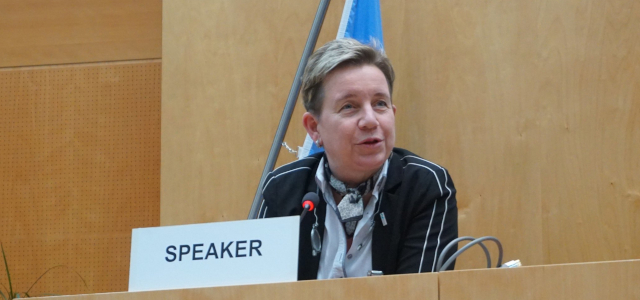The conference gathered more than 100 hydrologists, water managers and meteorologists from around the world, mostly WMO Members representatives. The aim was to help prepare strategic documents on the future of Hydrology at WMO, with the overarching goal to define how to improve WMO’s contribution to the water agenda by enhancing operational hydrology and water resources management capacities of its Members. WMO helped to establish GWP and both organisations collaborate closely, notably on two joint programmes: The Associated Programme on Flood Management (APFM) and the Integrated Drought Management Programme (IDMP).
“A central question is how we manage water resources – with stakeholders in and beyond the water community – better, faster and broader. And how we do this while addressing the fragmentation and isolation of the water community,” said Weber-Fahr, framing current and future water challenges from a GWP perspective.
Weber-Fahr pointed out that WMO on the information side and GWP on the work with institutions have strong synergies for (1) managing data - highlighting the potential for further collaboration with partners outside the hydrological and meteorological community; (2) managing extremes – building on the success of and developing the WMO/GWP help desks on flood and drought management; and (3) managing relationships – connecting GWP’s Country Water Partnerships and National Meteorological and Hydrological Services (NMHS).
“WMO’s unique assets could be further leveraged by aligning and investing in specific collaborative opportunities. This could be done through WMO’s assets in mobilizing the voice of NMHS and its relationships, as well as WMO’s implementation capacity in setting standards and connecting the hydrology and climatology community. WMO’s know-how and know-what can also improve learning competencies. Concrete opportunities for such further action beyond the most immediate water community offer themselves through strengthening the collaboration of NMHS and GWP’s Multi-Stakeholder Platforms”, said Weber-Fahr.
Photo: Monika Weber-Fahr speaking at the event in Geneva. Copyright: WMO.

